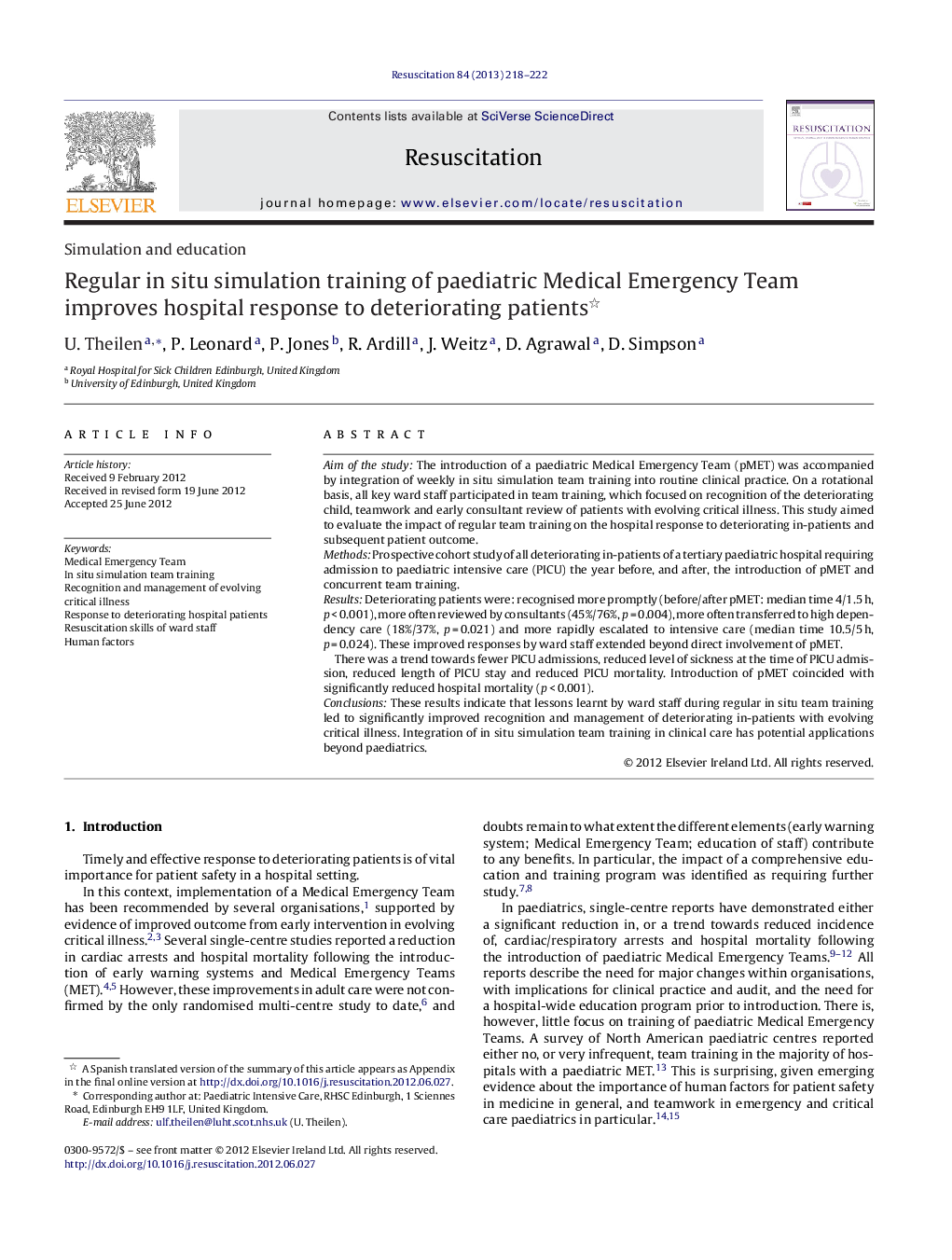| Article ID | Journal | Published Year | Pages | File Type |
|---|---|---|---|---|
| 3008330 | Resuscitation | 2013 | 5 Pages |
Aim of the studyThe introduction of a paediatric Medical Emergency Team (pMET) was accompanied by integration of weekly in situ simulation team training into routine clinical practice. On a rotational basis, all key ward staff participated in team training, which focused on recognition of the deteriorating child, teamwork and early consultant review of patients with evolving critical illness. This study aimed to evaluate the impact of regular team training on the hospital response to deteriorating in-patients and subsequent patient outcome.MethodsProspective cohort study of all deteriorating in-patients of a tertiary paediatric hospital requiring admission to paediatric intensive care (PICU) the year before, and after, the introduction of pMET and concurrent team training.ResultsDeteriorating patients were: recognised more promptly (before/after pMET: median time 4/1.5 h, p < 0.001), more often reviewed by consultants (45%/76%, p = 0.004), more often transferred to high dependency care (18%/37%, p = 0.021) and more rapidly escalated to intensive care (median time 10.5/5 h, p = 0.024). These improved responses by ward staff extended beyond direct involvement of pMET.There was a trend towards fewer PICU admissions, reduced level of sickness at the time of PICU admission, reduced length of PICU stay and reduced PICU mortality. Introduction of pMET coincided with significantly reduced hospital mortality (p < 0.001).ConclusionsThese results indicate that lessons learnt by ward staff during regular in situ team training led to significantly improved recognition and management of deteriorating in-patients with evolving critical illness. Integration of in situ simulation team training in clinical care has potential applications beyond paediatrics.
